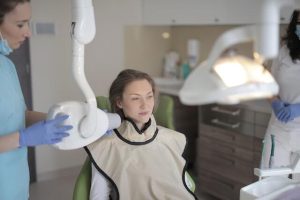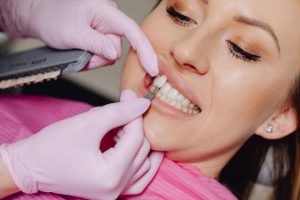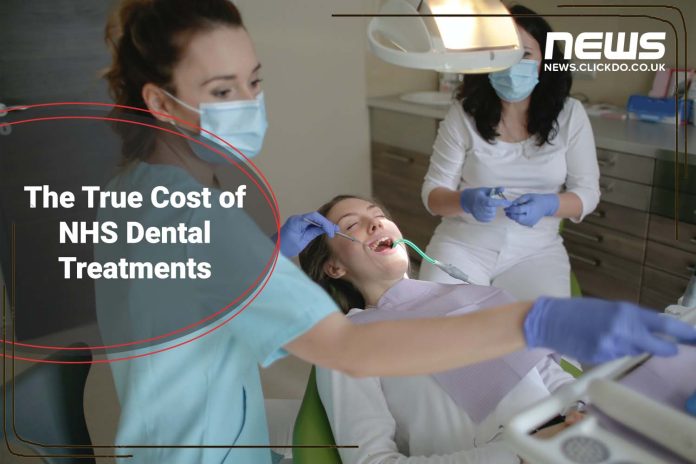Dentistry supplied by the United Kingdom’s National Health Service (NHS dentistry) is intended to guarantee dental treatments to the entire populace at affordable rates for emergency dental treatments. Here we discuss the true cost of NHS dental treatments.
Most dental care is provided by individually trained and certified dentists or dental practices. The majority additionally offer private dental treatments on a commercial scale, treatments that the NHS doesn’t cover.
Much older, chronically ill, or retired adults can expect their NHS dental cost to be covered as well as pregnant women for a year after giving birth. The majority of British patients preferred NHS dental treatment over private or commercial treatment in 2005, and the state median number of persons choosing privatized treatment was 23%.
However, the issue is that dental care on the NHS may not always be accessible immediately and is therefore not administered in the same manner as private dental treatments that NHS dentists offer.
If medically required, NHS dental treatments comprise tooth replacements, dental implants, braces for children as young as 16/18, root canal therapy, cleaning and dental hygiene treatments, whitening fillers, urgent dental procedures, and kid’s dental treatment options.
Most dentists that deliver NHS treatments even perform extra services to patients, including hygienist treatments. A UK dentist is permitted to decline NHS care and instead proposes to conduct the very same treatment individually through their private dental services.
The pandemic has put many UK dentists under pressure to keep up with their backlog of dental treatments from the lockdowns in 2020.
The Healthwatch review in 2021 of 1,375 people’s experiences with UK dentists found that “some people were asked to wait an unreasonable time of up to three years for an NHS appointment, [while] those able to afford private care could get an appointment within a week”.
So, is free NHS dental treatment an illusion?
Services And Treatments Under NHS Dentistry
Medical examination and professional reasoning would be used to determine what medication or dental treatment is most suitable for a patient. Your dentists should explain what procedures are available on the NHS and what is exclusively available privately, as well as the fees connected with each.
If you want to pursue other commercial choices, you must mention this in your dental assessment. You will be required to certify the proposal and will be handed a hard copy to retain. Request that the dentist clarifies the reasoning behind remedy alternatives as suggested for additional clarity. Before undergoing any treatment, you must be sufficiently briefed about the whole procedure, including the medical cost and consequences.
Who can Avail of the Free NHS Dental Treatment in England and their Costs?
You are exempt from paying for NHS dental services when you are:
- Below the age of 18, or the age of 19 and enrolled in full-time schooling
- Childbearing or had a newborn within the previous year
- Getting hospitalized in an NHS hospital and having your treatments performed also by the NHS doctor (though you’ll have to compensate for every implant or veneer).
- Getting low-income assistance, or people who are below the age of 20 and the dependent of anyone getting low-income assistance.
1. First Time Consultation
 Private: £20-£120
Private: £20-£120
NHS: Band 1 – £23.80
Additional regular sessions are normally less expensive, but make sure to inquire about continuing pricing, so you understand how much you’re spending in the big scheme of things. In a crisis, you must be examined as soon as possible, either through the NHS or privately. However, for further regular visits, you might have to allow time. If you use the NHS, it’s a smart option to schedule your following check-up visit after your previous one, or at minimum a few weeks before it’s required, to guarantee you secure a session whenever you need it. Private consultations would often be allotted a longer duration than NHS consultations, and visits could be available outside normal business hours if you wouldn’t want to skip work and would like to be examined as soon as possible.
2. Simple X-rays
 Private: £5-£40
Private: £5-£40
NHS: Band 1 – £23.80
As a novice patient, you would most likely have basic X-rays of your backside molars taken called bitewings. These are normally covered in the cost of a new patient appointment, as are those X-rays necessary as a section of a check-up. However, additional more complicated, and specialized X-rays might well be required to provide a picture of the entire state of your teeth and gums, and this might raise the additional cost if conducted privately.
3. Cleaning and Polish
 NHS: Band 1 – £23.80 or Band 2 – £65.20 for deep scaling
NHS: Band 1 – £23.80 or Band 2 – £65.20 for deep scaling
Private: £25-£85
Band 1 includes a variety of primary procedures such as scaling and polishing when required by the NHS dentist. However, the crucial term here seems to be ‘essential.’ When your dentist suggests a cleaning for further aesthetic upkeep, you will most probably be directed to a professional hygienist. You will almost certainly receive a prolonged session and a much more thorough cleaning if you go private and the cost may be around £50-80 for the hygienist treatment.
4. Metal Fillings
Private price: £30-£175
NHS price: Band 2 – £65.20
A gap in your teeth is filled with a metallic combination such as amalgam to protect your tooth. Private rates for all kinds of fillings are determined by the volume, material, and sophistication of the therapy required such as the number of teeth covered. Amalgam is durable and beneficial to the rear-eating tooth. It is the most frequent form of fillings supplied by the NHS and covered by the NHS rates. When you go private, you can get more aesthetic white fillings made of porcelain, which can cost you double or triple the price of the NHS filling.
5. Root Canal Therapy
 NHS price: Band 2 – £65.20
NHS price: Band 2 – £65.20
Private price: £45-£970
Private rates vary greatly since root canal therapy is a highly challenging procedure, and you might be sent to an expert dentist. The cost is determined by the volume and positioning of the tooth; rear teeth are often very costly and intricate. Because people are in a lot of pain, they want to get their root canal treatment as quickly as possible, but on the NHS, this may be problematic and patients may have to wait for weeks. They, therefore, have hardly any choice but to opt for private and much more costly treatment.
6. Removal of Teeth
 Private: £50-£370
Private: £50-£370
NHS: Band 2 – £65.20
Basic tooth extraction is offered to patients that are in pain by NHS and private dentists. Everyone else would require a recommendation to a dentist having specialized surgical expertise if the teeth are strangely formed or situated, and nearby bones might have to be excised to liberate them. So, again this treatment may be difficult to be accessed through an NHS dentist.
7. Crowns
Private: £250-£1,180
NHS: Band 3 – £282.80
Crowns are formed like natural teeth and fitted to protect a damaged tooth like a covering. Professional pricing is determined by the products or materials being used and the amount of time required. Any laboratory that creates caps for the NHS is subject to severe component rules, and most would produce both private and NHS crowns. Dentists, on the other hand, could utilize alternative providers or specialists for NHS and individual clients. It is therefore key to discuss all the crown options with a dentist first, before deciding which one to go for.
8. Dentures/Bridges
 Private: £355-£2,520
Private: £355-£2,520
NHS: Band 3 – £282.80
NHS dentures are often composed of hard acrylics that could appear thick and uncomfortable on the jaw compared to certain private choices. Privately produced dentures might be fashioned of a very costly bendable acrylic or chromium, which could also look far more real. Bridges are often more attractive and convenient than dentures, and maybe some patients prefer a lifelong alternative over temporary prosthetics. Bridges are occasionally denied on the NHS since they are perceived as an aesthetic alternative rather than the highly pragmatic and much less intrusive alternative of a denture. Again, consult several dentists first about all your options before picking one.
What if a Patient Requires Special Dental Treatment?
Certain dentists might be capable of treating patients with specific dental requirements throughout their procedures. Several patients, nevertheless, might be unable to access a regular dentist’s office due to a handicap or health problem. The dentist they consult must send them to an adequately skilled and equipped dental practice in this scenario. Ask your dentist about the requirements for a recommendation and whether it is appropriate in your instance, e.g., additional cost.
Local dental treatment facilities offer advanced dental care. To make it more accessible, public dentistry services are offered in several settings such as healthcare facilities, specialty medical centers, and medical clinics. House calls and consultations to primary care medical facilities are also available as an alternative. You can find out more about your options on the NHS website.
Can you complain if the dental treatment is not successful?
If you are dissatisfied with the dental care or services you received, it is typically better to inform the practitioner immediately and allow staff an opportunity to rectify the situation. They might be capable of solving the issue right away. If you require to file an official grievance with the dental practice, request a copy of the guidelines outlining what you need to do. If you need assistance reporting a complaint, you could contact an NHS Complaints Advocate.
Free NHS dental treatments accessibility is the key issue
Many dentists have been warning of a crisis within the NHS dental services system for years and it is clear why many UK dentists are unable or unwilling to offer NHS treatments when they can offer better and more highly paid services for dental patients. UK patients only have one choice now: to compare as many dental practices as possible for their dental treatments, which is of course difficult when in pain. But it seems to be the only option within the country, hence why dental tourism was popular before the pandemic.
The British Dental Journal reports that in 2010, around 63,000 UK citizens travelled abroad for treatment and that this number has increased significantly from 48,000 patients in 2014 to 144,000 in 2016.
Because free or more affordable NHS dentistry treatments are not easily accessible, even though they exist officially, it can be concluded that access to free or affordable NHS dental treatments is highly questionable. The NHS Business Services Authority provides digital resources that can assist you in determining whether you are entitled to free NHS treatments and how you can best access them and you can also complain about the current situation, which many dentists highly recommend to bring change about.
































